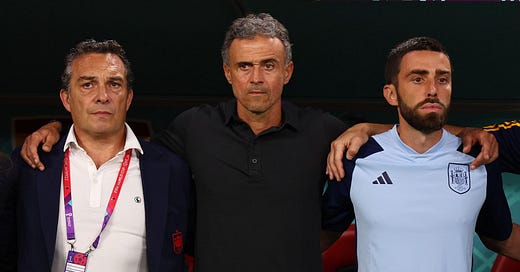Gareth Southgate and Luis Enrique might not have much in common (it’s unlikely, however compelling the prospect, that the England boss will be emulating his Spanish counterpart in setting up his own Twitch channel), but both are part of a select group of managers who have integrated psychologists within their coaching teams.
This, to some observers, may…
Keep reading with a 7-day free trial
Subscribe to The Mind Room to keep reading this post and get 7 days of free access to the full post archives.



